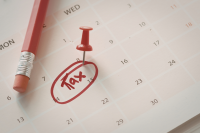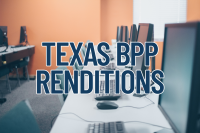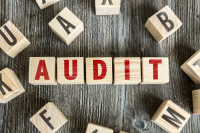Understanding Houston Suburb MUD & PID Taxes

When it comes to purchasing a home in the suburbs of Houston, Texas many prospective buyers focus on the property’s price tag, location, and amenities. However, what often goes unnoticed are the hidden costs associated with property ownership, particularly property taxes.
Let’s delve into the intricacies of property taxes in Houston suburbs, shedding light on various factors such as Municipality Utility District (MUD) tax rates, Public Improvement Districts (PIDs), and how these costs are billed.
Understanding MUD (Municipal Utility District) tax rates
Municipal Utility Districts (MUDs) play a crucial role in providing essential services such as water, sewage, and drainage to communities in Houston suburbs. MUDs are funded through property taxes levied on homeowners within their jurisdiction. The MUD tax rate varies from one district to another and is an important factor to consider when evaluating the overall cost of homeownership.
Homebuyers should research the specific MUD tax rate in the suburb they are interested in, as it can significantly impact their annual property tax bill. Some MUDs may have higher tax rates due to the need for extensive infrastructure development, while others with established systems may have lower rates.
PIDs (Public Improvement Districts) and their impact on property taxes
In addition to MUDs, Public Improvement Districts (PIDs) are another factor that can influence property tax costs in Houston suburbs. PIDs are special taxing districts created to fund public improvements and services, such as landscaping, security, and infrastructure enhancements, within a designated area.
Properties located within PIDs are subject to an additional tax on top of the regular property taxes. This PID tax is used to finance the improvements and services that benefit the community. Homebuyers should be aware of the existence of PIDs in their chosen suburb and factor in these additional costs when budgeting for homeownership.
How MUD and PID taxes are billed
Understanding how MUD and PID taxes are billed is essential for homeowners to effectively manage their finances. Unlike traditional property taxes that are billed by the county, MUD and PID taxes are often billed separately.
Homeowners in MUD areas typically receive a separate bill for MUD taxes, in addition to their regular property tax bill. This means that property owners may need to make payments to both the county and the MUD, requiring careful budgeting to avoid any surprises.
Similarly, PID taxes are usually billed as a separate line item on the property tax bill. Homeowners should review their tax statements carefully to identify any PID assessments and ensure they are accounted for in their overall property tax calculations.
Conclusion
As you embark on the journey of homeownership in the suburbs of Houston, it’s crucial to unveil the hidden costs associated with property taxes. MUD tax rates, PIDs, and the billing mechanisms for these additional taxes can significantly impact your overall financial commitment.
Before finalizing a home purchase, conduct thorough research on the MUD and PID tax rates in the chosen suburb. Take into account not only the base property tax but also any additional assessments associated with MUDs and PIDs. By understanding and budgeting for these hidden costs, you can make informed decisions and avoid unexpected financial burdens in the long run.
In the dynamic landscape of Houston suburbs, a comprehensive understanding of property taxes is key to unlocking the true cost of homeownership. Stay informed, plan wisely, and enjoy the benefits of suburban living without being blindsided by hidden expenses.
This blog article was written by our guest, The Houston Suburb Group. For Houston suburb real estate questions, contact Jennifer Yoingco, REALTOR® and her team. For property tax questions, contact Gill, Denson & Company Tax Advisors to learn more.









